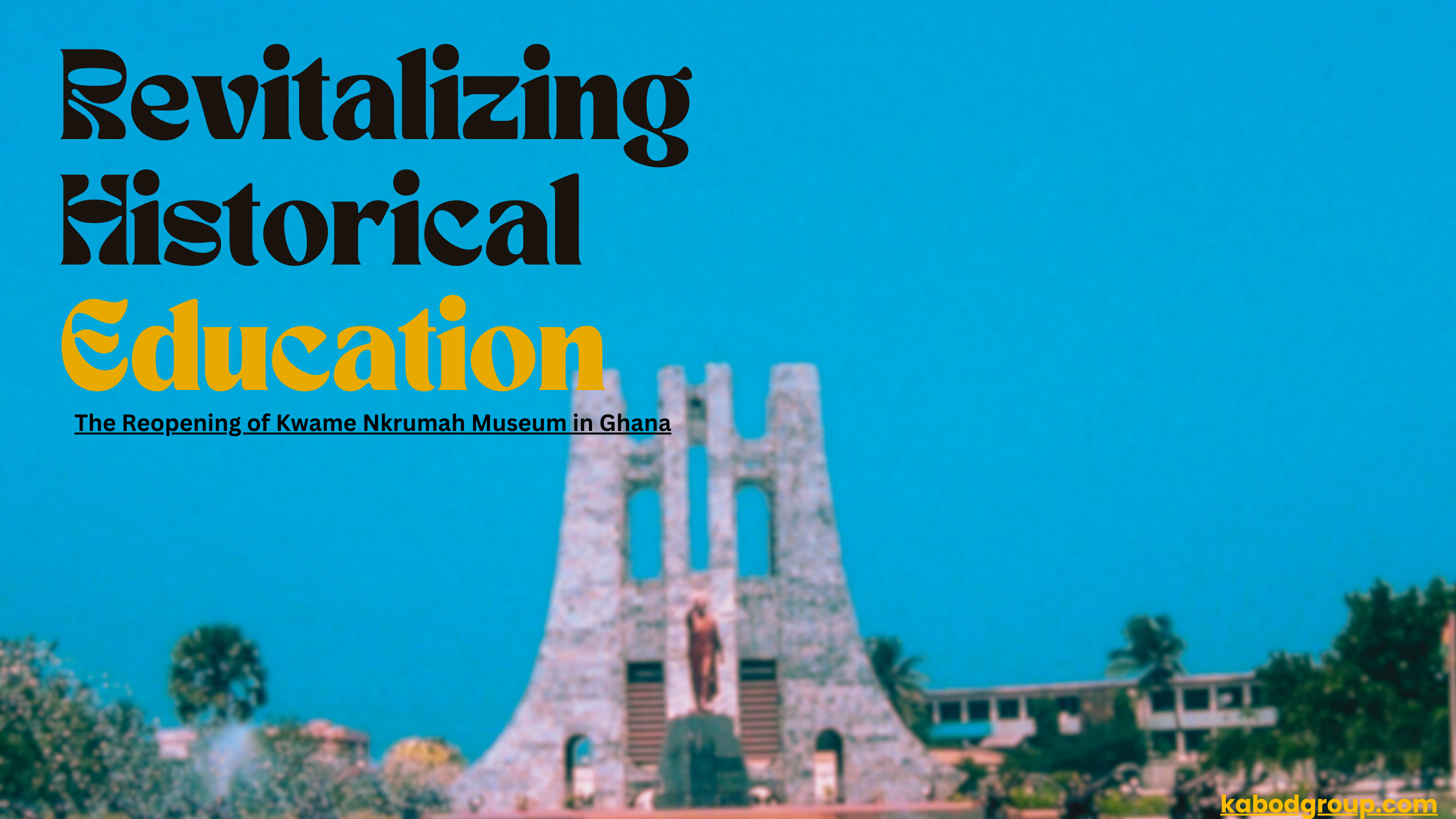Ghana’s historical heritage holds excellent significance, shaping the identity of its people and offering valuable lessons to the world. In this blog, we delve into a remarkable government initiative that has breathed new life into historical education – the reopening of the Kwame Nkrumah Museum. We explore how this momentous event in Ghana’s cultural landscape provides a unique opportunity to leverage historical education, not only for Ghanaians but also for individuals in the diaspora. Join us as we uncover the potential of the museum to promote Ghana’s rich history and foster a profound sense of heritage.
The Kwame Nkrumah Museum: A Gateway to Ghana’s History
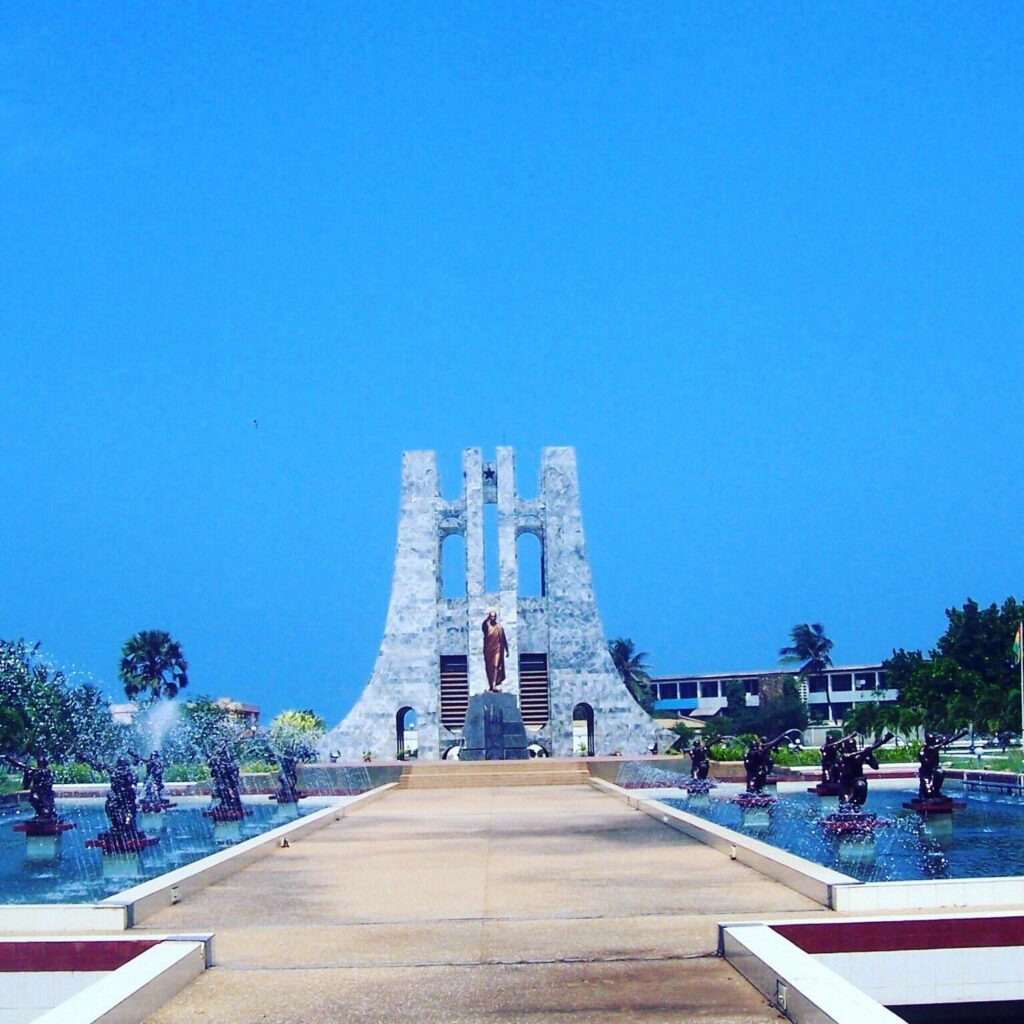
For some time, the Kwame Nkrumah Memorial Park stood silent, its doors closed to visitors. However, with its recent reopening, Ghana has embraced a transformative opportunity to revitalize historical education. The revamped museum now boasts enhanced facilities, including a presidential library, a receptive facility, a mini-amphitheatre, and a modernized payment and access system. Notably, the mausoleum has undergone a complete refurbishment, with upgraded tombstones and an expanded museum featuring an immersive audiovisual tunnel. The VVIP lounge, recreational area, gift shop, and fountain area with synchronized audiovisuals further enhance the visitor experience, making the museum a unique and captivating historical destination.
Enriching Historical Education for Ghanaians and the Diaspora
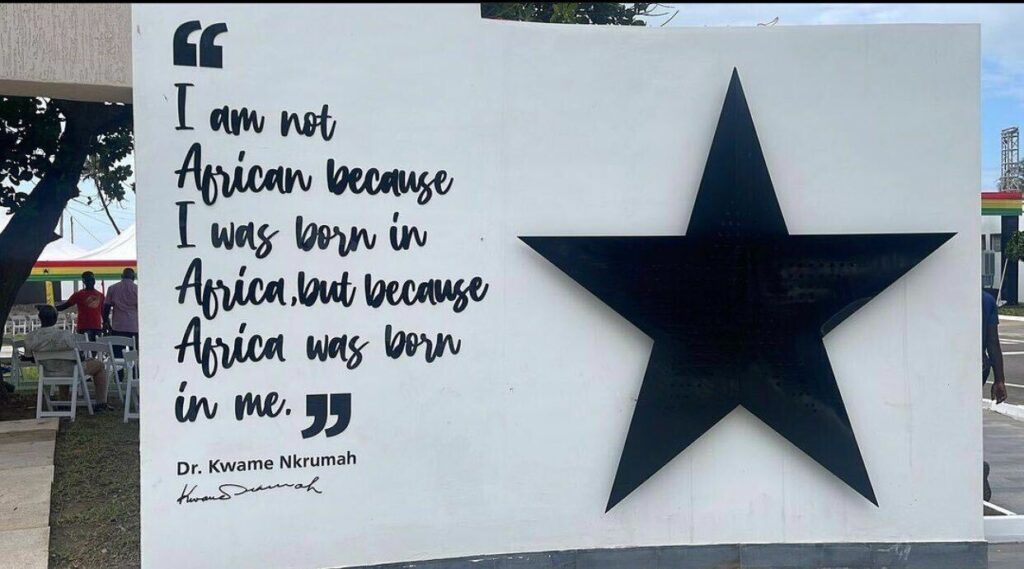
The reopening of the Kwame Nkrumah Museum holds immense potential to foster historical education, both for Ghanaians and individuals in the diaspora. The museum serves as a gateway to Ghana’s history, offering a comprehensive exploration of the life and legacy of Kwame Nkrumah, the nation’s founding father. Through engaging exhibits, multimedia installations, and interactive displays, visitors can gain deeper insights into the struggles, triumphs, and ideals that shaped Ghana’s independence movement. The museum’s upgraded amenities and expanded facilities provide an immersive learning environment, where historical education thrives and connections with Ghana’s past are forged.
Promoting Dialogue and Cultural Exchange
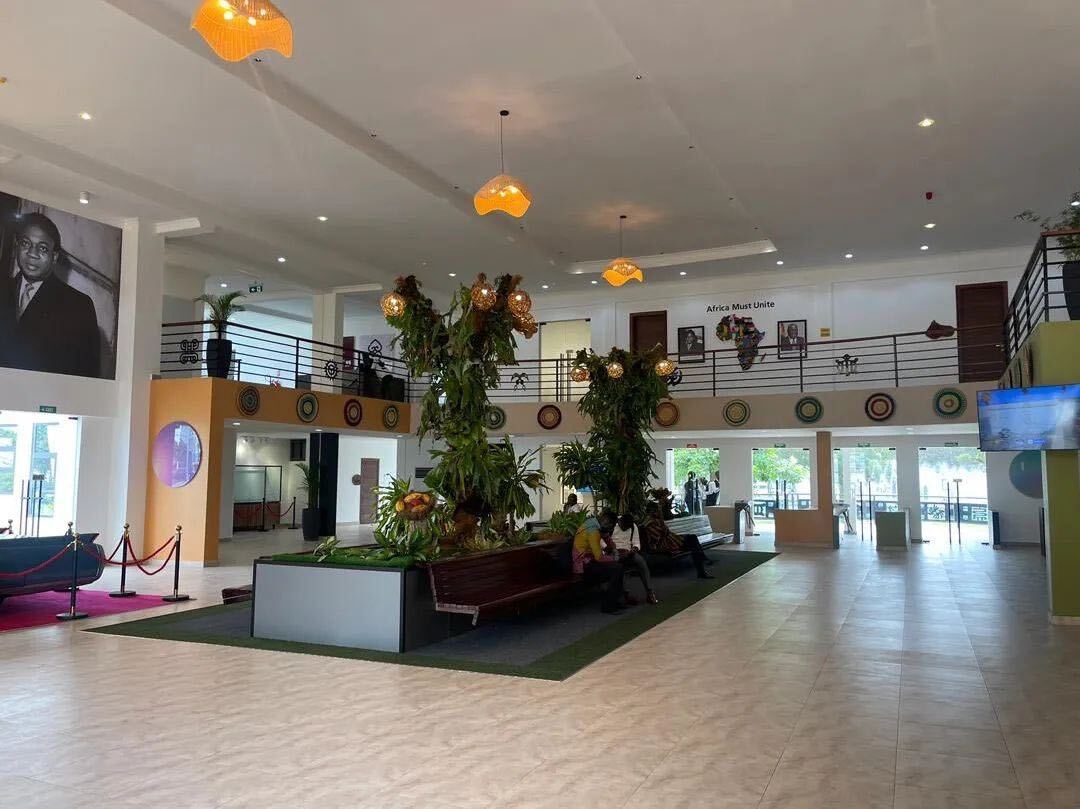
Beyond its physical features, the Kwame Nkrumah Museum serves as a platform for dialogue, cultural exchange, and understanding. By engaging with the museum’s exhibits, visitors have the opportunity to explore Ghana’s history from multiple perspectives, encouraging thoughtful discussions about the nation’s past and its relevance in today’s world. The reopening of the museum creates an inclusive space for Ghanaians and individuals from the diaspora to connect, share their experiences, and develop a deeper appreciation for Ghana’s rich cultural heritage. Through these interactions, historical education transcends borders and fosters a collective sense of pride and identity.
Conclusion: A Resurgence of Historical Education
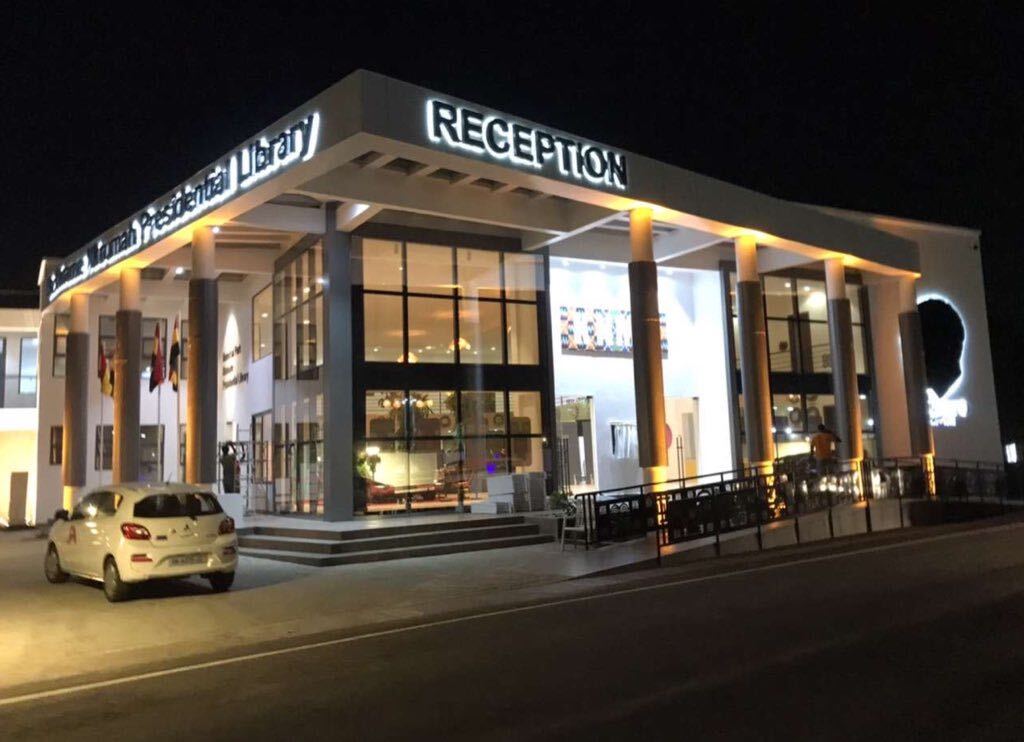
The reopening of the Kwame Nkrumah Museum signifies a resurgence of historical education in Ghana. This government initiative breathes new life into the museum, transforming it into a vibrant hub for learning, reflection, and cultural exchange. With its upgraded facilities and immersive exhibits, the museum provides a unique opportunity to explore Ghana’s history, particularly through the lens of Kwame Nkrumah’s visionary leadership. By leveraging this initiative, Ghana can foster a deeper understanding of its historical legacy, not only among its citizens but also among individuals in the diaspora. Let us embrace the power of the Kwame Nkrumah Museum as a catalyst for historical education, celebrating Ghana’s rich heritage and inspiring future generations to connect with their roots.
Written by Prince Teye-Gaga
